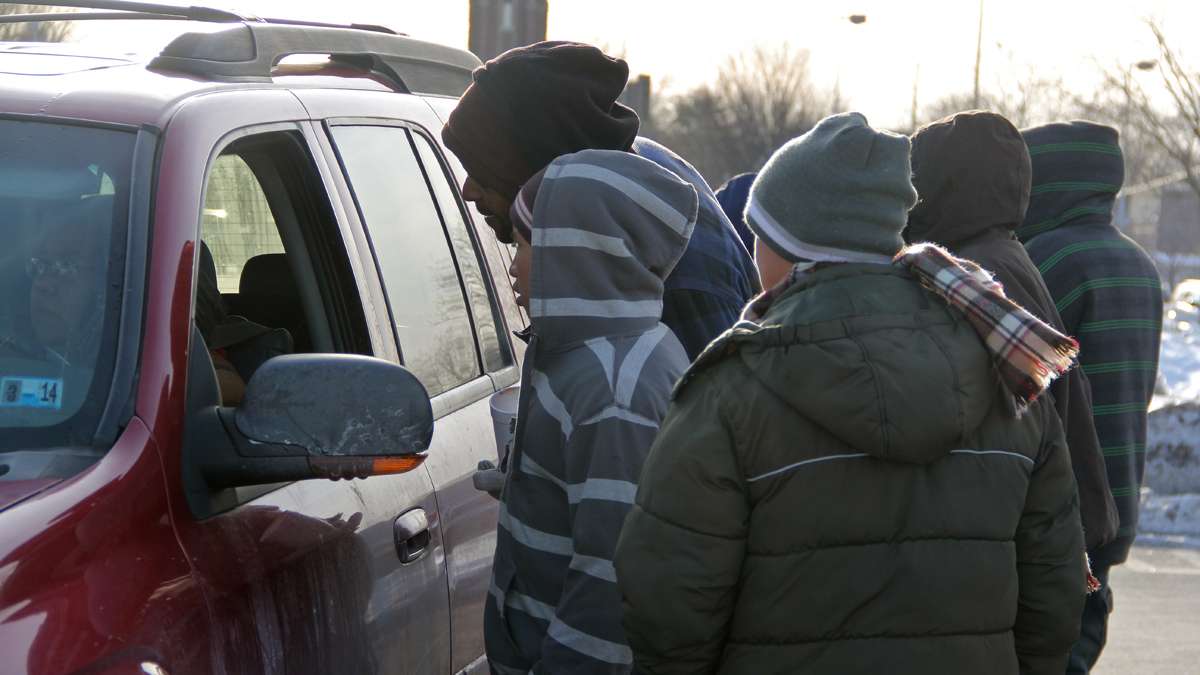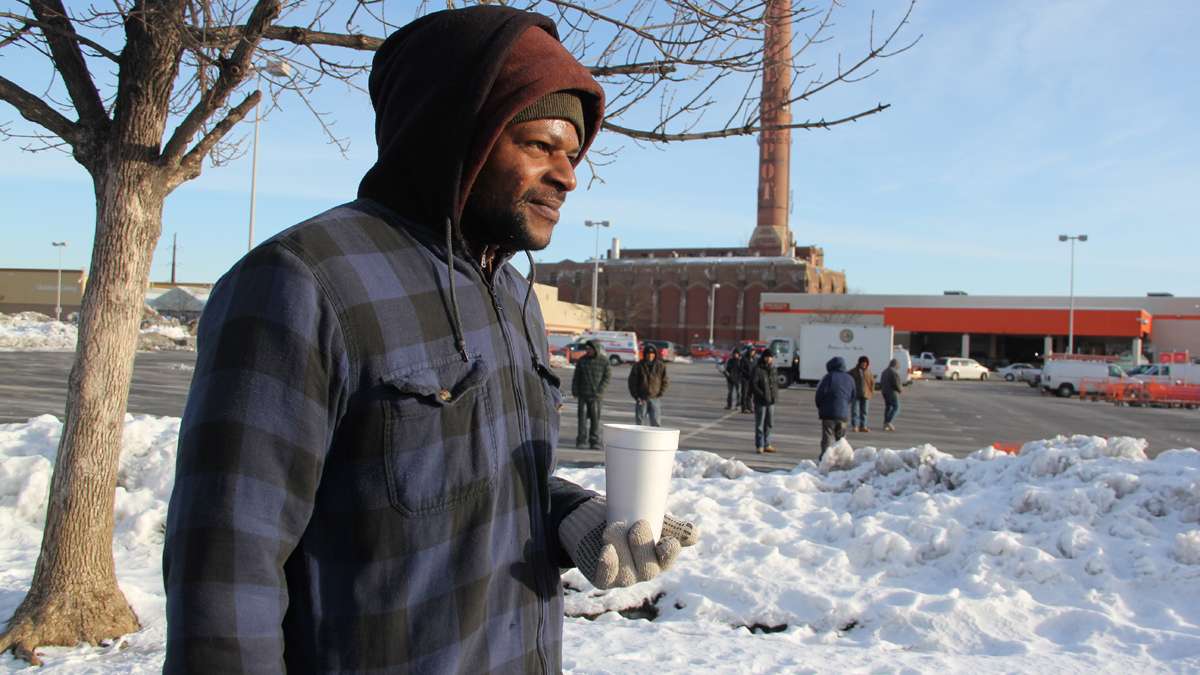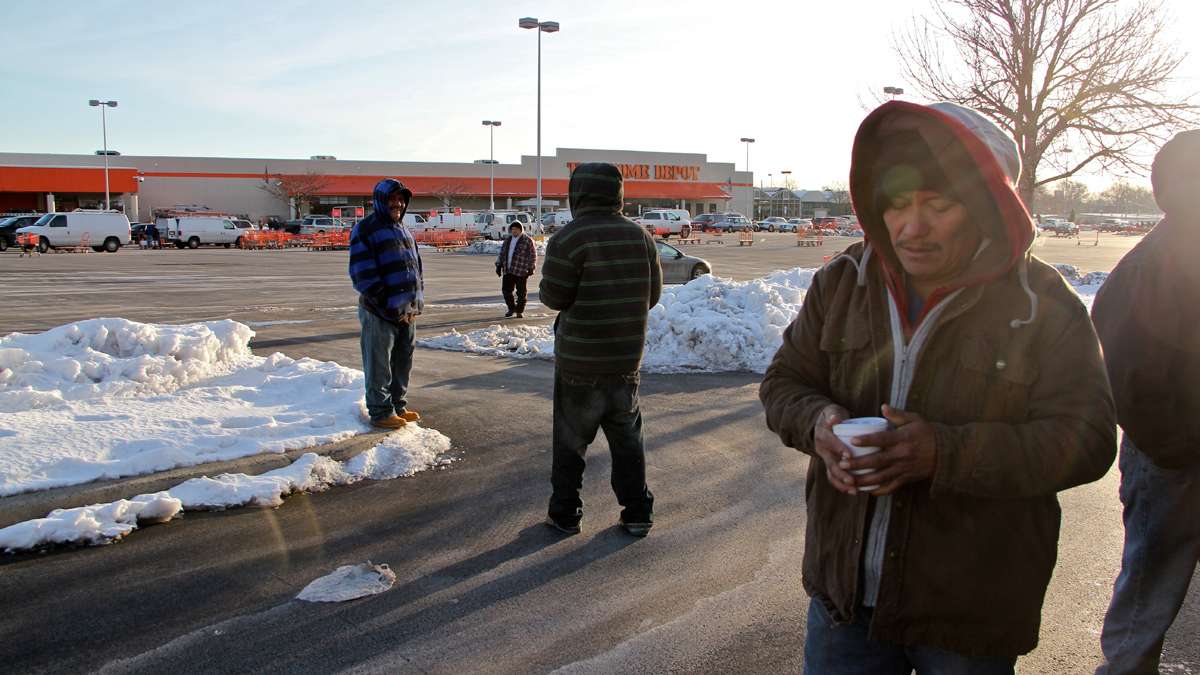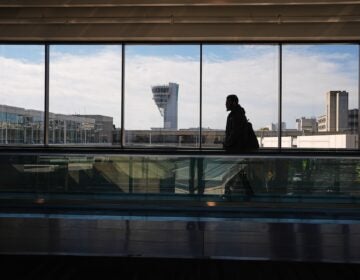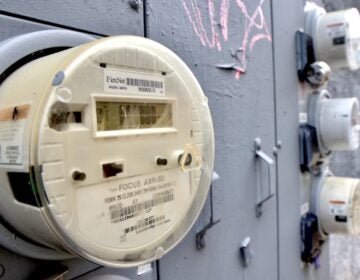Day laborers in the Northeast seek permanent place to muster for work
ListenNo matter how cold the weather, dozens of day laborers gather every morning in the parking lot of a Northeast Philadelphia shopping plaza hoping to find work with the contractors who stop at The Home Depot for supplies.
This informal economy has its routines. A food truck stops by every morning with breakfast and sandwiches in wax paper. When a beige van pulls up next to a grassy median, a small group converges at the passenger-side window to go back and forth with the driver about what he’s looking for that day.
The day workers aren’t welcomed here, but, so far, no one has found a better place for contractors and day workers to connect.
A man who asked that his real name not be used because of his immigration status said the further he moves from the entrance, the more likely someone else will get the next job.
Originally from rural Mali, he said he got the childhood nickname “Philadelphia” after seeing a movie set in the city.
“My teacher [was] asking me — if you’re grown up, what are you going to want to be, like judge, lawyer, police, contractor. I say no, my dream is to live in Philadelphia,” he said. “That was my dream ever since I was in third grade at school.”
He traveled to the U.S. on a business visa in 2004 and stayed after it ran out.
Now, the man called “Philadelphia” works out of the parking lot, earning between $40 to $100 a day – just enough to pay his bills and then send money every month to help his father in Mali. He’s usually hired only a few days a week.
‘We’re just trying to eat’
Day laborers have had a steady presence at this spot for years, and their numbers have grown quite a bit. Most speak Spanish. Some West Africans speak French and English. There are also a couple African-American men from North Philly.
M. Morris said he’s frustrated police regularly patrol the lot, sometimes ticketing day laborers for trespassing.
“We’re out here doing nothing wrong. What we’re trying to do is get some work, to do something positive. I could see if we were out here trying to rob all these damn stores out here, excuse my language but, man, we aren’t doing nothing,” Morris said. “We aren’t trying to hurt nobody. We’re just trying to eat.”
City police say they patrol partly in response to complaints about car break-ins, and the day laborers say police are giving out fewer tickets than they used to. In the past six months, the police department said it issued about 40 tickets. If drivers don’t have a license, their cars are towed.
Around 9 a.m., a police car that had been on the sidelines moved in to herd workers toward the far end of the plaza. The officer pulled up along an idling pickup truck.
“Why are all those guys around your truck,” he asked the driver.
Workers said police have ticketed some contractors too. Handing over his license and registration to the officer, the driver said he works construction but was not looking to hire anyone.
The crowd of day laborers upsets him, he said, because they’ll work for less than he can.
“Listen, you can’t sit. Signs are posted,” the officer told him. “You’re going to sit here, you’re going to pay for stuff, and then you’re going to go. Because if you sit here, you’re going to draw attention. And the guys are going to come and harass you.”
A Home Depot spokesman said there is no solicitation policy for all its stores. That applies to people handing out fliers or collecting donations too, he said.
The head of the 2nd Police Precinct, Capt. Frank Palumbo, said it’s his officers’ job to honor the company’s requests.
“I try not to get involved in the motives of the day workers. I don’t really have any opinion about that that would affect how I do my job as far as their status here or anything like that,” Palumbo said. “But I do know that anybody that would congregate, no matter their status was, as a day worker … on private property, that that should be deterred if … that private property representative does not want that activity there.”
Trying to work out a solution
A few months ago, one of the workers outside this Home Depot got in touch with some immigrant advocates who began coming to the plaza and convening workers’ meetings.
Yoan Calvo Machado works for The Farmworkers Support Committee as his day job.
Here in the Northeast, Machado explained, “What we want to get … is a specific spot, a place that they can let us stay, maybe to put a bathroom or a table where we can track and organize them better.”
These sorts of workers’ centers exist in other parts of the country. Towns such as Freehold and Lakewood in New Jersey have tried designated “muster zones” with various levels of success. California Home Depots have leased land to Los Angeles and Burbank, who let nonprofits set up day centers.
The Philadelphia organizers have convened meetings with day laborers, City Council members and police over the past several months, but haven’t come up with an alternative yet.
In the meantime, the mix of immigrants and lifelong Philadelphians keep showing up in the lot, searching for work, at least for today.
Editor’s note: This story previously identified Yoan Calvo Machado as working for the Restaurant Opportunities Coalition, his former employer.
WHYY is your source for fact-based, in-depth journalism and information. As a nonprofit organization, we rely on financial support from readers like you. Please give today.


